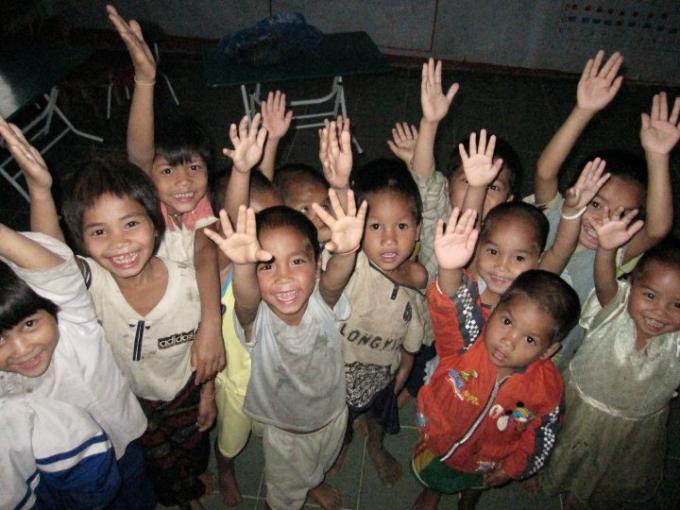Do small ethnic minority children enjoy boarding schools?
By To To Tam, Education Programme Officer
Boarding schools can be useful for children who live far away from any schools, helping them to avoid walking long distances every day. However, for children as young as six or seven, it seemed cruel for them to be away from home for most of the week.
As such, when I visited a boarding school – with a large ethnic minority enrolment – in Yen Bai province last month, I wanted to find out if they enjoyed going to boarding school. As a mother, my initial feeling prior to visiting the school was a sense of pity. I felt very sorry for the children who had to attend boarding school. What do they do when they miss their parents? Who comforts them when they cry or feel hurt?

However, my first impression upon entering the school surprised me. All around me were happy faces: big smiles, chubby cheeks, curious eyes with a little bit of shyness. Though I couldn’t speak much with them as I do not understand their dialect, I felt their comfort and happiness in this environment.
Through translations from the older children, I was very impressed to learn that in boarding schools, children feel more protected and are given more attention than at home. This is probably due to their poor economic conditions and the way ethnic people live – children who are over six years old are usually neglected at home. They don’t need to be taken cared of like infants and toddlers; their parents have to work all day in the field; and their older brothers or sisters are at schools. At the boarding school, these children have relatives or older brothers/sisters to look after them. Their friends are their neighbours back home and they can play with each other. They can find some love of family here.
But what struck me most was hearing a child saying: “I like to stay in boarding school because I can have full belly here”. It turns out that in their families, most of the food is allotted to small babies or adults who work in the field. Parents often think that children are just playing and therefore do not need much to eat. In boarding schools, children can have three meals per day instead of one or two per day at home. It made me sad to hear about their living conditions at home but comforted that they are well taken care of here.
After the trip, what remained on my mind was the children’s laughter. They smiled, and they made me smile.
 Vietnam
Vietnam